Home Inspection Information for Sellers and Buyers
Selling a home should always include at a minimum a home inspection. My recommendation is to have a home inspection, termite inspection, roof inspection and heating and air inspection. If you are selling your home, it is a good idea to get a home inspection prior to the sale to discover any issues that could stall or stop a sale. As a seller you can do an inspection for obvious items that need attention. If you are buying a home, you want to make sure you are not purchasing a home with an expensive problem or safety issue.
Usually home inspections will uncover some items that will need to be addressed to complete the sale. This is part of the negotiation process. Most defects are minor and easily fixed with a minimum of expense. This is important to make sure the buyer is satisfied and that the sale closes.
Home inspections should include a thorough inspection of the exterior including the roof, exterior siding or brickwork, windows, interior of every room, inspection of the attic and a complete examination of the crawlspace if not built on a slab. A good inspector will check for the following:
- Structural Defects
- Flooring
- Walls
- Windows and Doors
- Attics and Basements
- Plumbing
- Appliances
- Roof
- Electrical
- Heating and Air
Home inspections will range in cost from $300 to $1,000 depending on the location, size and structure of the home. This is a buyer’s expense as the buyer wants the home inspector to be working for them. The buyer should choose the home inspector and can do so from referrals or the interviewing of multiple inspectors.
Home inspections will take time and that will depend on the size of the home and the inspector. The buyer should be at the home inspection to get instant feedback from the inspector and have a better understanding of the condition of the home.
After the inspection is complete, the inspector will produce a report and will review it with the buyer. This provides the buyer a chance to ask questions and get more details from the inspector. Should there be defects that are outside the scope of the inspector’s ability to suggest a repair, the buyer can ask for a referral for a specialist.
From my point of view, a home inspection is not optional. It is a critical part of purchasing a home. Expect that there will be items that need attention and keep in mind there will be a difference in items that are cosmetic and those that are structural or that make a home unsafe.
